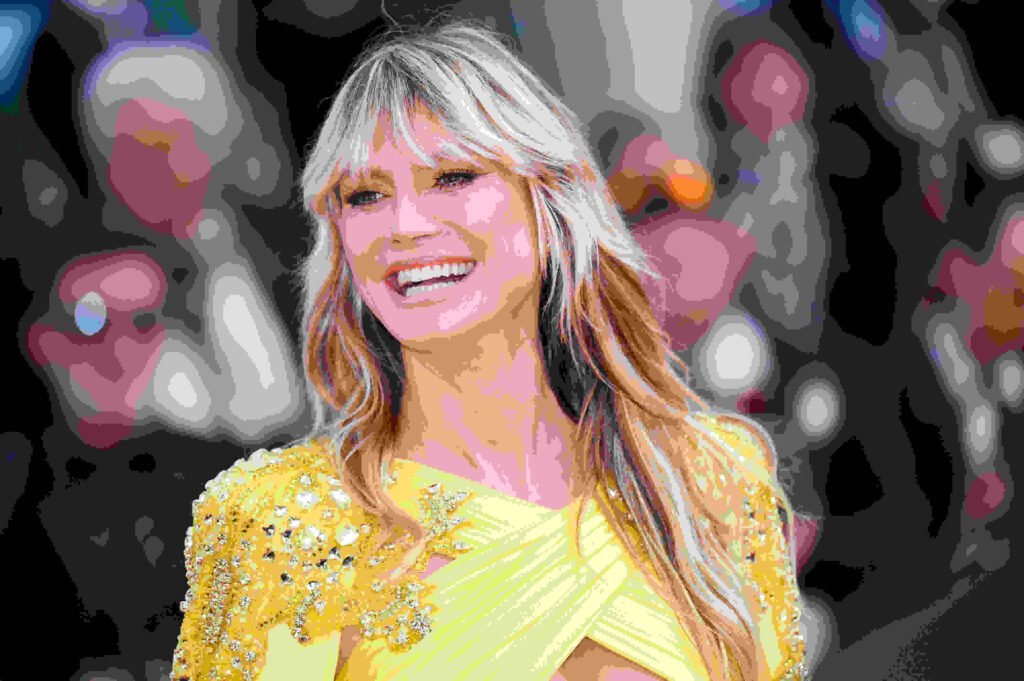Heidi Klum, the renowned model and television personality, recently found herself amidst a storm of rumors concerning her dietary habits. The controversy erupted when allegations emerged that she was restricting herself to a mere 900 calories per day. These claims gained traction following Klum’s participation in an Instagram Q&A session, during which she openly discussed her breakfast choices and even stepped onto a scale on camera.
In an attempt to dispel the misconceptions, Klum took to her Instagram stories to address the issue directly. She stated firmly, “I just got home, and some friends are sending me these articles that have been written that I only take in 900 calories. I want to say, I don’t think I’ve ever had to count my calories in my life and don’t believe everything that you read.”

Klum proceeded to shed light on the probable source of the confusion, emphasizing that the misrepresentation stemmed from her Q&A session. She had merely responded to a question about her weight by briefly showing her weight on a scale. Her frustration with how this innocent act had been distorted into a sensationalized headline was palpable.
In a broader context, Klum expressed her dismay about the state of contemporary journalism. She remarked, “And I don’t know, people just put things together and just write a bunch of stuff, and it’s really unfortunate because there is a lack of credible journalism these days.”

This incident serves as a reminder of the challenges faced by public figures in an age of rapid information dissemination, where even innocent actions can be sensationalized and misrepresented. Klum‘s response underscores the importance of critical thinking and verifying information before accepting it as fact in an era where rumors and misinformation can spread like wildfire.
Klum went on to suggest that the false information about her diet likely resulted from a misinterpretation of her Q&A session: “Someone asked me how much I weigh, and I got on the scale and showed how much I weighed. And I don’t know, people just put things together and just write a bunch of misleading information, and it’s disheartening because there is a lack of responsible journalism nowadays.”
Heidi Klum’s intention was to set the record straight and emphasize the importance of not jumping to conclusions based on rumors and misconceptions.
Conclusion
Heidi Klum’s recent encounter with dietary rumors sheds light on the complexities of being a public figure in today’s media-driven world. In this blog, we’ve witnessed her response to these rumors, highlighting the significance of verifying information before accepting it as fact.
In an era where sensationalism and misinformation can spread rapidly, it’s imperative that we all take a step back and critically evaluate the information we encounter. Heidi Klum’s experience serves as a reminder that even seemingly innocuous actions can be sensationalized, causing unnecessary confusion and concern.

Ultimately, the story of Heidi Klum’s dietary rumors underscores the importance of fact-checking and critical thinking. In a digital age where information is abundant but accuracy is sometimes elusive, we must be vigilant consumers of news and social media. By doing so, we can contribute to a more informed and responsible online community, one that values the truth above sensationalism.
Click here: https://truereviewmagazine.com/










